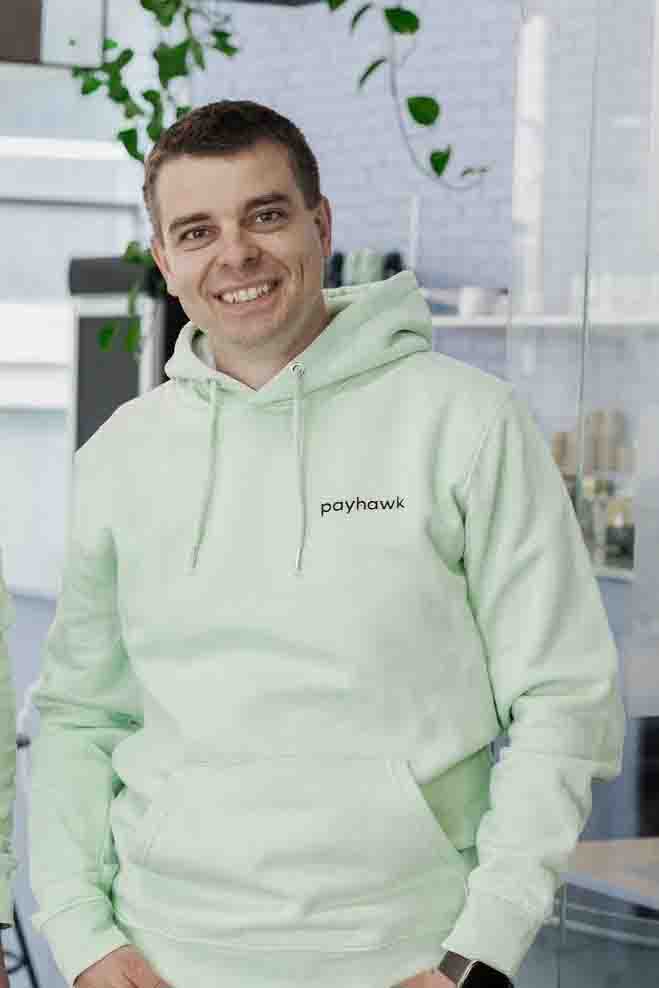By Hristo Borisov, CEO and co-founder of Payhawk
The facts are clear: tech workers can no longer be bought with high salaries and pizza Fridays. In an uncertain economy, workers’ focus is squarely on money and affordability, taking a savvy approach to what they earn and what they spend. Now more than ever, top talent want the opportunity to work on interesting and scalable solutions that have real impact for their customers.
At Payhawk, we’ve implemented an approach that communicates exactly what our offering is to new recruits that will get them excited to join, and become committed to the company’s mission and journey, above and beyond free breakfast bribery.
The perks of offering perks
Tech has long been known for its inclination towards enticing talent with perks. From free breakfast to beer Fridays, small companies at seed stage that are yet to turn a profit, will typically end up offering perks in place of high salaries.
Perks can differ in their approach, particularly in relation to whether a staff member is office-based or remote. Post-covid, there are more online perks: staff receive a budget to use at their discretion – spent on anything from childcare to house-cleaning – appealing to the needs of a remote worker. For those still going into an office, they may prefer a travel allowance, or gym membership. Although these quotidian perks may look appealing on a job advert, they are no longer enough to entice the best talent to the leading tech companies of the future.
When perks start to hurt

The employers’ arms race to offer the best perks has resulted somewhat in a counterproductive activity of ‘keeping up with the Joneses’. Unfortunately this can backfire when disgruntled employees see their competitors enjoying better brunches, or attending more exciting company trips. Worse than this however, are problems of scalability. A company of 30 people can offer free breakfast, but at 300, this could become untenable and removing perks will negatively impact morale.
The shift from perks to benefits
Not all staff want to be wooed by perks, and will instead opt towards interrogating their future at a company. At Seed stage companies, potential new hires may ask for more security by interrogating the runway of the business, or asking questions about future funding; when to expect another raise, who future investors might include and where the company could expand.
When companies move on from Seed to Series A and B, staff will look more at the product; where engineers are based, who their investors are; interrogate the total addressable market, and what the equity opportunities are, because that company is now no longer a startup in need of enthusiasm but, like Payhawk, an established business with huge commercial potential.
Hiring and retaining staff
There is a way to create a balance that includes benefits, but also gives meaningful incentives for an employee to commit. Offering a commute allowance, health insurance, pension, or salary sacrifice are all great benefits, but the fight for the best talent should never be about perks. We want our employees to join and stay at Payhawk for our product, the knowledge and experience they will gain, and the team they work alongside. Communicating the kind of office culture to potential employees is the best start you can offer.
This can include effectively communicating working practice, for example, remote companies seeking those happy with fully remote work, or clarifying fully in-office work. It’s important to be honest about business practice from the outset. By asking candidates about their current setup, the location they are based, and whether it’s work from home, it will help to align expectations and source the most suitable candidates.
It’s also important to explain the company’s current output and future roadmap to employees, who are often — especially in early-stage companies that have issued share options — shareholders in a business. This transparency is a key part of retaining staff commitment. When one of the most important perks is equity, staff who are even one step away from strategic decisions will want to know what’s happening company-wide and the impact of all their hard work.
If you trust your staff enough to give them a piece of the business, then you should entrust them with the knowledge of the company’s direction. They will begin to think like business owners, rather than treating it like a 9-5, which is of huge benefit to the business in return. The risk that staff have taken in joining a growing tech company is respected, and they are treated as part of it from day one.


